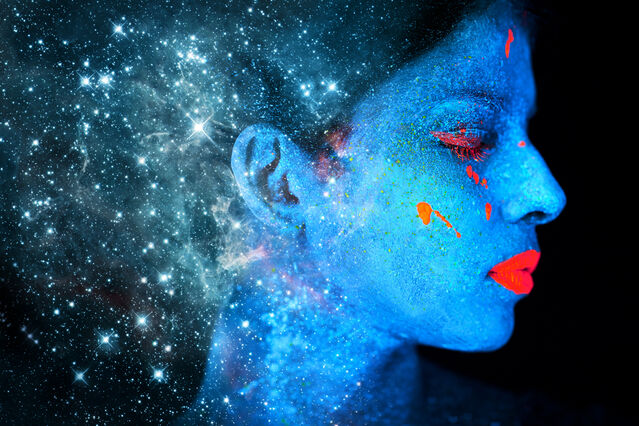Spirituality
Spirituality and Its Contribution to Mental Health
A neglected construct in an age of anxiety, depression, and addiction.
Posted August 6, 2022 Reviewed by Vanessa Lancaster
Key points
- Spirituality has been defined as an expression of the transcendent ways in which to fulfill human potential.
- Spirituality is a recognized psychological construct that is different from religiosity and has transcultural applicability.
- Extensive research evidence indicates that spirituality is important in treating psychological conditions.

Spirituality has become a topic of much interest in recent times in the scientific community. This includes the convergence of advances related to the role of spirituality in self-help groups, health psychology, psychiatry, and consciousness research.
Spirituality as a Psychological Construct and Therapeutic Factor
Spirituality has traditionally been considered an elusive concept that is difficult to investigate. Hence, its role in psychological well-being has been seen as largely absent.
More recently, however, spirituality has been rightfully placed in contemporary psychology. This includes metatheoretical propositions that explain it as a legitimate psychological construct, which differs from religiosity and has transcultural applicability.
While spirituality may include religion, it has been defined as an expression of the transcendent ways to fulfill human potential and as a synonym for constructs such as hope, meaning, wholeness, harmony, and transcendence (O’Reilly, 2004). Spirituality has been recognised as an important feature of the therapeutic process and a contributor to improving life satisfaction and well-being and reducing antisocial behavior, substance abuse, and suicide rates (Brawer et al., 2002).
For example, recent contributions in schema therapy, an increasingly popular model embraced by clinicians for working with people with multiple disorders, explain spirituality as “a natural wisdom or spirituality that is not necessarily channeled through institutional religion, and which provides a sense of strength and direction in the face of loss and adversity” (Edwards, 2022, p. 5).
Similarly, recent advances in health psychology have developed measures to assess spirituality (Braghetta et al., 2021). A new framework in healthcare for a better understanding of spirituality is proposed as an important aspect of healthcare research (de Brito Sena et al., 2021).
Research Evidence Supporting Spirituality
A body of research evidence indicates that spirituality plays an important role in treating medical and psychological conditions (Stanard et al., 2000) and that any form of psychotherapy exploring the depth of the human psyche will eventually reach the spiritual domain (Elkins, 2005). Meta-analytic results of 31 studies investigating spiritually oriented psychotherapies provide empirical evidence of their benefits to individuals experiencing various psychological conditions such as anxiety, eating disorders, depression, and stress (Smith et al., 2007).
Contemporary contributions in consciousness report the positive and causal associations between spiritual well-being and mental health (Saad et al., 2022), as well as supporting evidence for using spiritual experiences to treat conditions such as addiction, depression, and anxiety to positively transform lives (Corneille & Luke, 2021).
Recent contributions to psychiatry assert that “state-of-the-art clinical psychiatry seeks to provide successful treatment of persons with mental illness in a comprehensive approach integrating … social, and spiritual aspects” (Huber & Schneeberger, 2020, p. 1).
Finally, recent advances derived from rigorous scientific research examining the efficacy of 12-step programs (12SP), initially spawned from Alcoholics Anonymous (AA) and the treatment of addiction, have been found to be effective stand-alone interventions for substance use disorder (SUD), as well as effective adjunct professional clinical practices (Kelly et al., 2020). Despite earlier doubts and criticisms from academia, today, “the evidence for the efficacy of 12-step interventions is compelling” (Greene, 2021, p. 19). Spirituality is a central construct, therapeutic factor, and mechanism of change inherent in 12SP (Kelly et al., 2011).
Neuroscience, Consciousness, and Spirituality
Given the progress and convergences outlined thus far, it’s not at all surprising that neuroscience and the clinical benefits of spiritual practices have become major drivers of recent scientific inquiry.
Contemporary consciousness research provides emerging proof-of-concept evidence of spirituality by asserting that: (1) the mind is separate from the brain; (2) spirit and soul are comparable to energy and information that exist in the vacuum of space; (3) individuals can receive intuitive information that is accurate and useful in their individual and collective lives; and (4) physical and psychological health can be fostered by active loving spiritual processes.
The Wisdom of Carl Jung
Almost a century ago, Carl Jung noticed that many people in his day were afflicted by debilitating feelings of insignificance, inadequacy, and hopelessness. In his Collected Works, Jung concluded that such feelings were caused by what he called the “Spiritual problem of modern man.”
Spiritual Practices–Where to Begin?
From a personal perspective and professional capacity, I dare to say (without exaggeration) that spiritual practices could save anyone years of suffering and/or psychotherapy.
Not surprisingly, in recent times, multiple authors/spiritual teachers – some of whom have become international bestsellers (e.g., Tolle, Singer) – have been disseminating the message of spirituality.
Finally, an alternative starting point to access your spirituality is to consider the following distinction of the self, provided over a century ago by William James–a founder of the psychological movement. In brief, this relates to the "I" and the "Me" in self-referential awareness. The self as “I” (the knower or higher self) relates to the self as the subject of experience (self as subject), which also relates to meditation experiences and studies linked to the notion of mindfulness and other Buddhist constructs.
The causal agent, the thinker or observer who does the thinking or observing, is also responsible for self-awareness and self-knowledge. The “Me” (the known self) relates to the self as the object of the experience or cognition (self as object). This distinction in self-referential awareness has re-emerged recently in neurocognitive science, particularly in experimental studies investigating the phenomenological self and consciousness.
References
Braghetta, C. C., Gorenstein, C., Wang, Y. P., Martins, C. B., Leão, F. C., Peres, M. F. P., ... & Vallada, H. (2021). Development of an instrument to assess spirituality: Reliability and validation of the Attitudes Related to Spirituality Scale (ARES). Frontiers in Psychology, 12, 764132. https://doi.org/10.3389/fpsyg.2021.764132
Elkins, D. N. (2005). A humanistic approach to spiritually oriented psychotherapy. In L. Sperry & E. P. Shafranske (Eds.), Spiritually oriented psychotherapy (pp. 131–151). American Psychological Association. https://doi.org/10.1037/10886-006
Ho, D. Y., & Ho, R. T. (2007). Measuring spirituality and spiritual emptiness: Toward ecumenicity and transcultural applicability. Review of General Psychology, 11(1), 62-74. https://doi.org/10.1037/1089-2680.11.1.62
Jung, C. G. (1928). The spiritual problem of modern man. Collected Works, 10, 74-94. https://www.degruyter.com/document/doi/10.1515/9781400850976.74/html?lang=en
Miller, L. J. (Ed.). (2013). The Oxford handbook of psychology and spirituality. Oxford University Press.
Schwartz, G. E. (2012). Consciousness, spirituality, and postmaterialist science: An empirical and experiential approach. In L. J. Miller (Ed.), The Oxford handbook of psychology and spirituality (pp. 584–597). Oxford University Press. https://doi.org/10.1093/oxfordhb/9780199729920.013.0037
Singer, M. (2007). The untethered soul: The journey beyond yourself. New Harbinger Publications.
Tolle, E. (2006). A new earth: Awakening to your life’s purpose. Penguin Life.
Walach, H., Schmidt, S., & Jonas, W. B. (Eds.). (2011). Neuroscience, consciousness and spirituality (Vol. 1). Springer Science & Business Media. https://www.springer.com/series/10195




